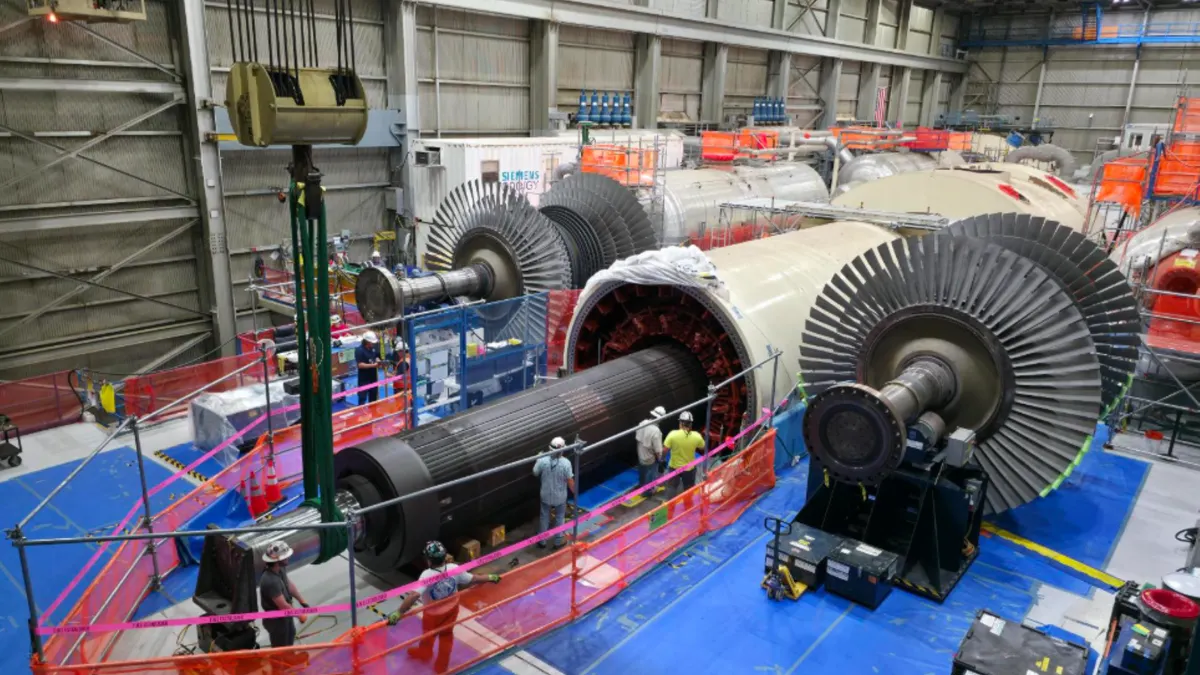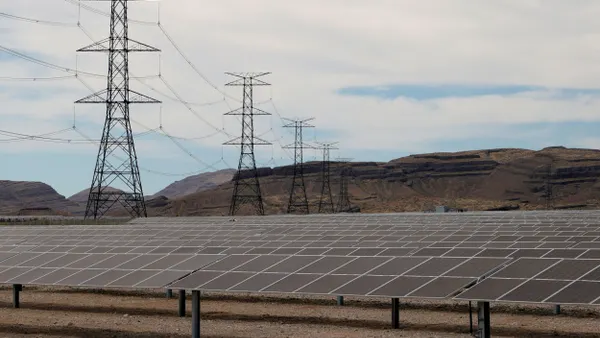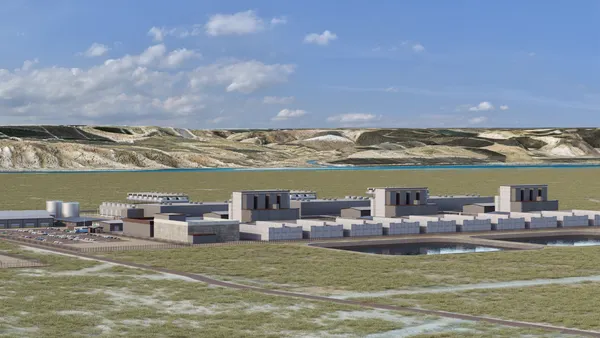Dive Brief:
- Connecticut Gov. Daniel Malloy (D) issued an executive order Tuesday directing state utility regulators to conduct a review of the financial viability of the Millstone nuclear plant and its role in meeting state carbon targets.
- The order also directed the state's Public Utilities Regulatory Authority (PURA) to assess whether action should be taken to support the nuclear generator, such as subsidy payments or specialized contracts, and how those actions would affect power markets.
- Officials from Dominion, the plant owner, told local media outlets they want action from lawmakers this year on a legislative proposal to support Millstone. they said results of the regulatory assessment could come too late to save the plant, which the company has threatened to close.
Dive Insight:
Malloy's executive order could provide a lifeline for Millstone support provisions, which failed to pass in the state's regular legislative session.
The review will assess both the need for nuclear supports and how they may be implemented, including options within the existing regulatory framework, collaborative measures with other states, or additional mechanisms or payments that could support the Millstone plant.
In June, the Connecticut Senate passed a bill directing state regulators to evaluate whether to hold a special power procurement for the Millstone plant, similar to contracting for wind and solar under renewable portfolio standards. But some senators complained about being "bullied" into the vote by Dominion, which pushed for its passage late in the session, and the bill never came up in the House.
Now, Dominion is pushing for those provisions to be included in a budget bill under consideration in a special legislative session. While Malloy's order directs regulators to finish their Millstone review by Feb. 1, in time for the 2018 session, the company said that could be too little, too late.
"Without action this year, the prospects for continued operation of Millstone diminish,” Paul Koonce, head of Dominion's generation group, told the CT Mirror.
If no support package passes this year, Dominion has said it will enter into a strategic review of the Millstone plant's finances, which could include closure. The plant has a capacity contract with ISO-New England until the end of May 2021, but could transfer those obligations to another generator if it chooses to retire early.
Independent power producers oppose the nuclear supports considered by legislators, saying they could cost ratepayers up to $300 million a year. In a letter to Malloy last month, a group of generators wrote that Dominion has "offered no evidence that it needs a special deal from the state in order to remain economically viable," noting an MIT working paper that listed Millstone as the nation's most profitable nuclear plant.
Dominion fired back in its own letter, saying the generators are “purposefully misleading policymakers.” The company argued consumer electricity costs would actually be higher through 2030 without the nuclear plant and that many of the other facilities listed as profitable in the MIT report are under financial pressure to retire as well.
The financial situation for Millstone could become clearer through the review; Malloy's order directs regulators to use the "best available information," on the facility, including audited financial statements.
The Millstone debate is just one of a handful of nuclear subsidy discussions brought on by low power demand growth and competition from cheap natural gas plants. Illinois and New York already have subsidies, and they are being considered in Ohio, New Jersey and Pennsylvania.













